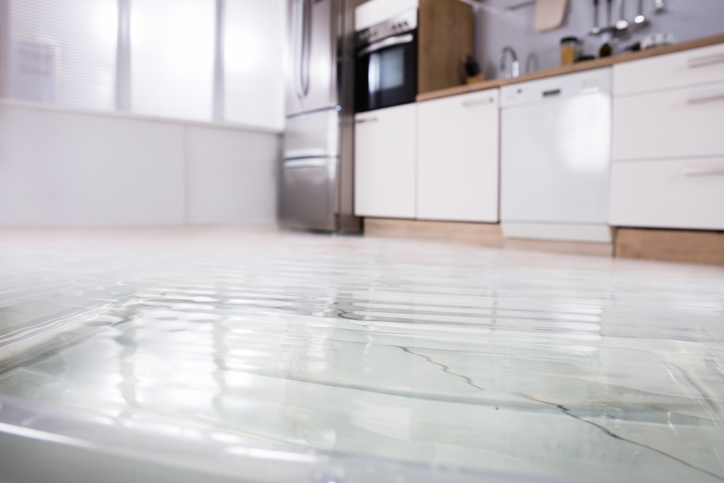You more than likely have at least some tile flooring in your home. When properly installed and sealed, tile floors are practically impervious to water. This is why you’ll commonly find them in potentially wet spaces likes kitchens, laundry rooms, basements and bathrooms.
But even though tile flooring is a great choice for these rooms, it’s still possible to get water damage. How does water damage happen to tile floors? Let’s read on to learn more!
HOW DOES WATER DAMAGE FLOOR TILES?
Water damage doesn’t typically effect the tile itself, but the problem comes when moisture is left for an extended period of time and it gets into the grout, which causes it to deteriorate. From there, it can loosen up your floor tiles over time.
HOW DO YOU PREVENT WATER DAMAGE TO FLOOR TILES?
Besides starting with proper installation and sealing of your tiles and grout, the most important thing to do to prevent water damage to floor tiles is to make sure you don’t let water stand on your tiles for very long. Be sure to wipe up spills and messes before water has the time to seep down below your tiles and do damage to the subfloor and the tile itself.
If you notice you have tiles that are starting to loosen up and stop sticking to the floor properly, you probably have water damage.
WHAT ARE COMMON SOURCES OF WATER DAMAGE TO TILE FLOORS?
A lot of people are surprised to learn that water can damage tile floors. Be on the lookout for these common ways that water can cause trouble:
- Flooding from a washing machine malfunction
- Flooding from a dishwasher malfunction
- Water heater or softener failure
- Slowly leaking plumbing
- Flood waters from heavy rain events
What Kind of Damage Can WATER CAUSE TO TILE FLOORS?
With excess moisture present, tiles in your floor can become loose. When this happens, they can detach from the surface and potentially crack.
An even bigger problem with water damage to tile floors is that it can lead to mold, mildew and bacteria growing and spreading underneath the damaged, floating tile. When this happens it can create an even bigger problem as, eventually, the subfloor beneath the tiles rot, which could be a quick fix or lead to major structural repairs being needed.
If water damage to your tile floors has led to mold, we’ve got your back! Reach out to us for a complimentary quote – you need a specialized contractor who has the experience and workforce to handle the job!
At C&C Unlimited, we pride ourselves on completing projects safely, on time, on budget and within scope.

